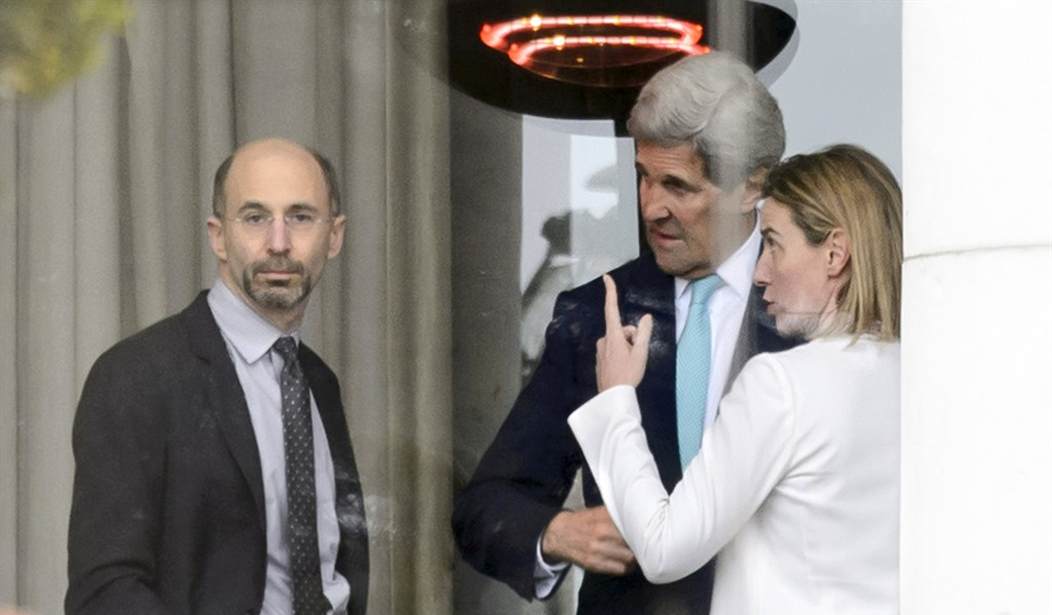The brutal war Hamas launched against Israel is going into its third day. As the battlefield shifts from Israeli living rooms to the streets of the terrorist enclave of Gaza, many people are trying to understand what has happened. A logical first stop on the trail to understanding what appears to be an intelligence blunder dwarfing 9/11 is to find out why Iranian agents heavily infiltrated the Biden defense policy apparatus.
The obvious answer to the question is "yes," a thousand or so armed men don't cross your border and hunt women and children down in your towns without a major screw-up of some kind. Joe Cunningham has some solid things to say on the subject in Was There an Intelligence Failure in Israel?
Answering the obvious question and burning down the careers of a handful of people may feel good, but it doesn't answer why.
Intelligence analysis is as much art as science. Rarely does any intelligence agency get fully actionable intelligence at the strategic level. Rather, people who are supposed to be authorities on a particular government or country or area sift through a lot of clues and indicators to make a best guess, for lack of a more accurate term, on enemy capabilities and intentions.
If you want a movie that explains why intelligence failures occur, my top recommendation would be "The Big Short." Take the story of the home mortgage meltdown of 2007, change it to analyzing intelligence, and you can see how hard it is for a dissenting view to be taken seriously. I would submit that more intelligence failures occur because they happen outside the favored narrative rather than a case of absolute surprise. The bits of information sifted through a colander labeled "Hamas will not escalate the level of violence" yield a result that, shockingly, predicts Hamas will not launch a surprise attack on Israel.
The other part of the equation is the quality of the information. Getting good information is hard enough, but when information or the interpretation of that information is corrupted, the task becomes impossible.
A week ago Semafor broke a major story about a secret effort by the Iranian government "to bolster Tehran’s image and positions on global security issues — particularly its nuclear program — by building ties with a network of influential overseas academics and researchers." One of the people recruited into this group was Robert Malley, Joe Biden's special envoy for Iran. Malley brought Ariane Tabatabai into government. Tabatabai ended up as chief of staff to Christopher Maier, the Assistant Secretary of Defense for Special Operations and Low-Intensity Conflict, the Defense Department's top counterterrorism official. Tabatabai remains on the job even though we have emails from her checking in with Islamic Revolutionary Guard Corps officials about what her views should be on various subjects.
Malley has been suspended from his position and is reportedly under FBI investigation for something, but, unlike anything dealing with Trump, no one is talking. In fact, the Biden bunch will not even answer questions from Congress.
Tablet Magazine describes the whole story in High-Level Iranian Spy Ring Busted in Washington. RedState has touched on the issue in and .
See Blinken's Palestinian Attack Response Was So Absolutely Awful That He Deleted It.
Put this in the context of the same policy that released $6 billion to Iran (Former State Department Advisor Decimates Biden Team Excuses About the $6 Billion for Iran) to be placed in a bank in Qatar, which is Hamas's major source of funding and where top Hamas leaders live to be safe, and you would be right to wonder how deeply our Iran policy is run from Tehran. By the way, this is not new behavior if you consider Biden to be Obama's third term. It was Obama who cut a deal to give Iran nuclear weapons, but one of the architects of that deal was Ben Rhodes, who had difficulty obtaining a security clearance because, it was rumored, of his ties to Iran.
If Iranian agents advise senior policymakers in the Biden NSC, Pentagon, and State Department, it would be no shock that intelligence would be interpreted through the lens of that advice. It also wouldn't be a shock that someone who asked an IRGC officer how to testify to a Senate committee might have similar conversations about what to expect in the way of a US response.
The danger is not that this was an intelligence blunder; blunders happen, and blunders are fixable. The danger is that it was a blunder made possible by the high-level penetration of the Biden foreign and defense policy apparatus by Iranian agents of influence. If that is the case, then this represents the most colossal failure of intelligence due to foreign penetration in our history.

